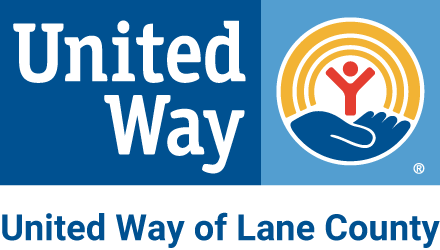The Disproportionate Impacts of COVID-19 on Immigrant Communities
In late August, service providers and advocates from around Lane County hosted a virtual event to share how immigrants have been disproportionately impacted by the COVID-19 pandemic locally. Over 120 community members attended the Zoom event, hosted by Live Healthy Lane’s Lane Equity Coalition and the Integration Network for Immigrants in Lane County.
Senna Towner, Director of Health at United Way of Lane County (which supports Live Healthy Lane) shared, “As a partnership committed to improving the health of all people in Lane County, it seems critical to discuss how immigrants in particular are impacted by this unprecedented public health and economic crisis so that we as a community can be responsive. “
Guadalupe Quinn, a member of the Integration Network for Immigrants of Lane County, Latinx Alliance of Lane County, & Grupo Latino de Acción Directa (GLAD) shared that while the supports and services for immigrants in Lane County are more robust than years ago, many of the needs of immigrant communities are still not fully met by existing services.
“This virus has really exposed not only the disparities, but also just the need for us as a whole community to continue to improve and do better in our outreach and our understanding of what the issues that impact our community are.”
Many immigrant families are struggling financially to afford basic necessities, like housing and food. Immigrants make up a large portion of seasonal and agricultural workers; many were prepped to sustain the slow season from December to March when agricultural jobs were not operating, but were not able to cover expenses this spring and summer when jobs they expected to return to were no longer hiring.
Additionally, much of the information distributed at the start of the pandemic—health information, school updates, and ways to access social services - has not been accessible to immigrant families.
Ana Quintero-Arias, with the Department of Education’s Migrant Education Program, stressed the importance of organizations thinking through how immigrant families can access important information.
“If a flier’s sent home, but it's not in your language, it doesn't really help. If an email is sent to families but they don’t have access to email… if there's a hotline set up but no one can speak Spanish, that doesn't really help. So, as people are putting their plans together for how to support families, it’s important to think broader, and to really think a little bit deeper as well as to what are the steps that it takes.”
To compound the issue, many Latinx immigrants in Lane County emigrated from Guatemala, and speak the native language Mam, but may have never learned to read or write it—pointing to the limits of assuming Spanish materials can close the information gap.
Amidst all of this, Quintero-Arias shared how detrimental the inability to see families face-to-face has been.
“It's overwhelming and it's extremely stressful, we can't go hug our families, so that just adds this extra layer of a disconnect. As a community, we are used to going into people's homes; they invite us over for a meal and we sit down and we talk about the programs and supports… and figure out how to navigate different systems,” she said.
Fear for their families’ safety underpins all of these issues, often preventing many families from seeking the supports they need. Service providers have been working around the clock and in new, creative ways to reach those they serve and offer supports.
To better address food insecurity in culturally-sensitive ways, for example, Ana Maria Dudley, a Community Health Worker at with PeaceHealth Cottage Grove Community Medical Center and Coordinator with Peggy’s Primary Connection, shared how PeaceHealth helped reshape how families could access food. To supplement the more common weekly food boxes available in the area, PeaceHealth created a small mercado (market) allowing families to take home smaller amounts of food more frequently to last a day or two, which for some more closely mirrors how they might shop outside of COVID-19.
Julia Rojas of Centro Latino Americano shared her philosophy for supporting the families she works with. “We’re not here to help them—we’re here to support them, empower them. I’m going to give you all these supports, but you are the one who’s going to make the magic happen.”
The Lane Equity Coalition plans to host two more events on this topic over the next few months. Those details, along with a recording of the event,can be found at www.livehealthylane.org/events.
The event was sponsored by PacificSource Community Solutions and Trillium Community Health Plan/ Many community partners contributed to the development of the event, including Catholic Community Services of Lane County, Centro Latino Americano, CrossCultural Now, Oregon Department of Human Services, FOOD for Lane County, GLAD, Lane County, Linguava, Migrant Education Program, PeaceHealth Cottage Grove Community Medical Center, Peggy’s Primary Connection/South Lane School District Family Resource Center, Springfield Public Library, and United Way of Lane County.


